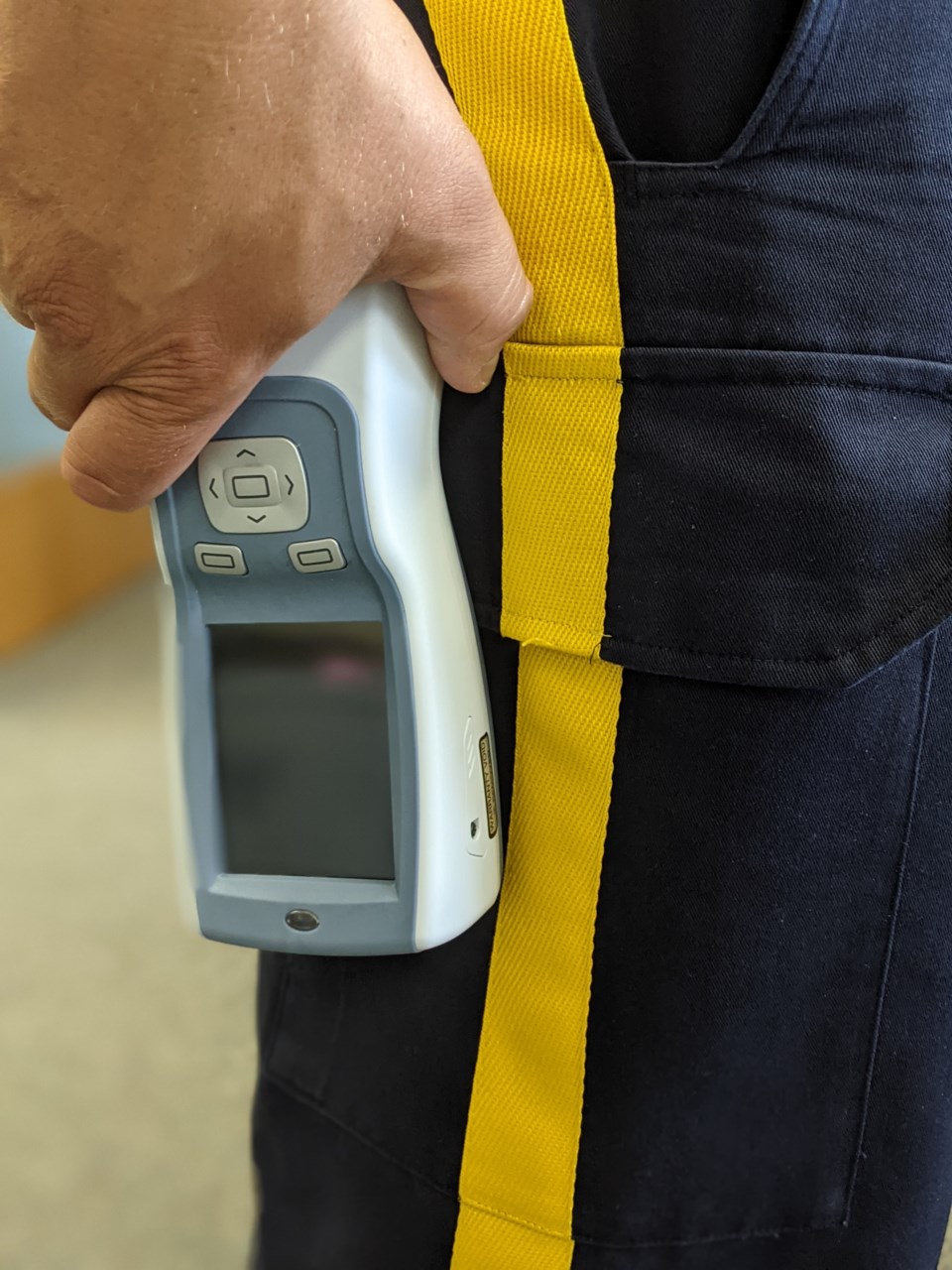REGINA — Cannabis has been legal since 2018, but that doesn’t mean you can use it and legally drive, cautions SGI.
For the May Traffic Spotlight, SGI and law enforcement are on a joint mission to share some information to help drivers understand what the laws are regarding cannabis.
“There are still some misconceptions about what you can and can’t do when it comes to cannabis and driving,” said Penny McCune, chief operating officer of the Auto Fund. “Some people think that because it’s legal, they can drive right after using it. Others think because Saskatchewan has a ‘zero-tolerance’ for drug-impaired driving, they will fail a roadside test if they have used cannabis several days ago, or within the last month. Neither of those is correct.”
An increasing number of the impaired driving roadside suspensions are a result of people driving under the influence of drugs, according to SGI.
Police use federally approved roadside saliva testing devices to determine the presence of THC in a driver’s saliva. (They can also detect drug impairment using Standardized Field Sobriety Tests or SFSTs).
In 2021, police in Saskatchewan issued 523 administrative licence suspensions to drivers for a fail on a roadside drug screening device or performing poorly on a SFST due to drugs. That’s a sharp increase from the 76 suspensions in that category just two years prior.
While SGI doesn’t have cannabis-specific impaired driving statistics, anecdotally police say a significant proportion of drug-related suspensions are due to drivers under the influence of cannabis. A driver who has used cannabis won’t react or make decisions as quickly as a sober driver. Attention, judgment, motor skills, balance and co-ordination are all impacted.
“Zero tolerance” doesn’t mean someone can never use cannabis
Zero tolerance means drivers should not get behind the wheel with any level of impairing drugs in their system that is detectable by a screening device.
“THC has a shorter lifespan in saliva than it does in urine or blood,” said RCMP S/Sgt. Patrick Barbar. “For most people, THC will no longer be present in oral fluid after 12 to 24 hours.”
It means someone is highly unlikely to fail a test if they use cannabis on a Saturday, and drive to work on a Monday.
Barbar also noted that police can only conduct oral fluid tests or SFST if they have reason to suspect recent cannabis consumption.
“If someone had used cannabis 48 hours ago, for example, that suspicion would not exist and a test could not be conducted,” he added.
And, just like with alcohol, people should not get behind the wheel if they are feeling the effects of cannabis in any way, SGI warns.
Consequences
“We encourage our customers to enjoy our products in a safe and responsible manner, including following impaired driving laws,” said Farmer Jane Cannabis Co. president Kerri Michell. “It is important that people are educated in order to reduce risks and avoid unnecessary consequences. Doing so keeps them and others safe.”
Consequences include licence suspensions, vehicle impoundments, financial penalties and the requirement to complete an impaired driving education program. Consequences vary depending whether you’re a or driver, and if it’s your first, second or subsequent offence.
At the very minimum, a driver who registers a fail on the roadside saliva testing device will have their licence suspended for three days, and vehicle immediately impounded for three days; the length of suspension and impoundment is longer for repeat offenders and new drivers. That administrative suspension is not a criminal charge, but does also result in a requirement for the driver to attend driver education classes and costs the driver four demerit points under SGI’s program.
Depending on the level of impairment, police may opt to demand the driver undergo a Drug Recognition Evaluation, which is a more intensive series of tests that can trigger criminal charges and more significant consequences.
There are in the Criminal Code which can result in significant monetary fines or even imprisonment, depending on the drug concentration, whether it is a repeat offence, and whether an impaired driver caused a collision that hurt or killed someone.
Other important facts
Consumption (smoking, vaping, eating or drinking) of cannabis products in a vehicle by a driver or passenger is prohibited.
You can transport cannabis in your vehicle from a place where you legally bought it to a place where you can legally consume it, or from one place of legal consumption to another.
Driving under the influence of cannabis is against the law even if you have a prescription for it.
The approved screening devices detect the presence of THC in saliva, not CBD.
For more information about cannabis, please visit the and websites.
Check out SGI’s social media accounts (, , and ).




